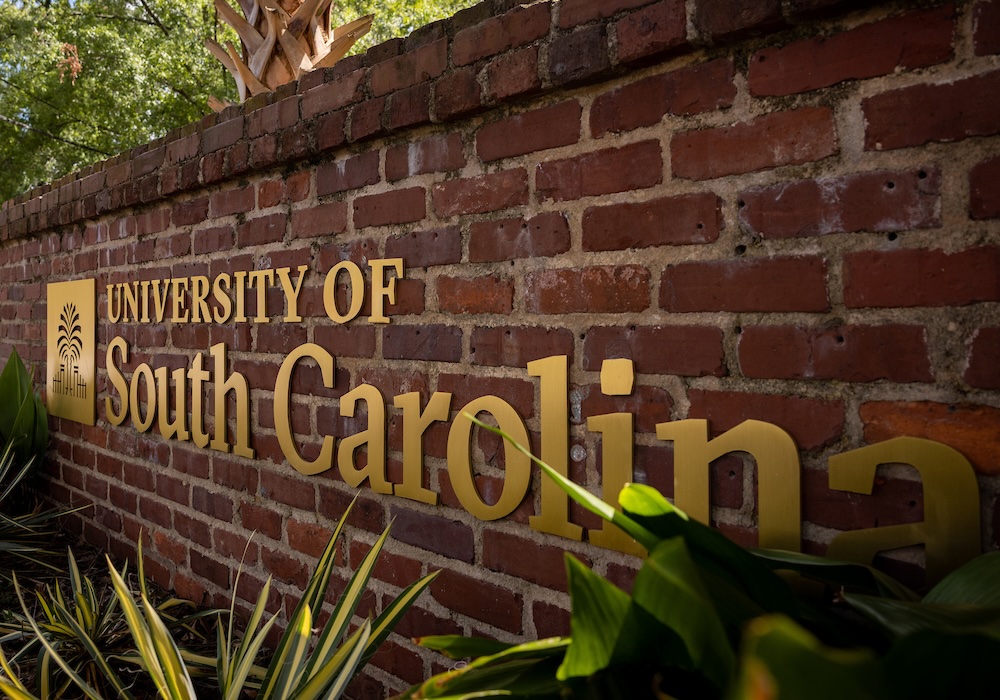The University of South Carolina set a third-straight record by attracting $323 million in sponsored awards during the fiscal year ending June 30, continuing momentum in innovation over a wide range of fields from high-tech engineering to critical health sciences.
Despite a rapidly shifting federal funding landscape, USC’s sponsored awards — which include research grants, service awards and training awards — rose by 4.5 percent over the same period a year earlier, thanks to researchers aggressively pursuing opportunities across an array of funding agencies.
USC’s sponsored awards have increased by 36 percent since 2021-22. The boost in awards gives South Carolina’s flagship university more opportunities to address the challenges facing the Palmetto State.
Over the past four years, highly competitive federal funding has risen by 39 percent to $241 million. State-sponsored funding reached $51 million, up 27 percent over the past four years.
“These record-breaking numbers reflect the strength of our exceptional faculty,” USC President Michael Amiridis said. “With strong support from our Office of Research, USC’s faculty researchers are innovating, pushing the boundaries of science and scholarship, and addressing issues of critical importance to our state and nation.”
USC earned four federal research awards with one-year funding totals of more than $8 million in fiscal year 2025: manufacturing advanced composites for hypersonics ($12.7 million); bolstering the Carolina Institute for Battery Innovation ($10.2 million); and working on engineering projects with the Office of Naval Research ($9.8 million and $8.1 million). The Carolina Institute for Battery Innovation received an additional $13.2 million in state funding this year to build its state-of-the-art research, manufacturing and teaching facility.
Many of USC’s colleges increased their sponsored awards over the past year.
Awards to the College of Social Work and the School of Medicine Columbia increased by more than 45 percent. The Molinaroli College of Engineering and Computing led all USC colleges in receiving sponsored awards with a record $77 million, an increase of 12 percent from a year ago.
The College of Education’s awards rose by 22 percent to $28.2 million over the previous year, while the College of Nursing’s awards increased by 19 percent to $10.2 million.
USC researchers received major support from federal health and science agencies as well as the Pentagon:
- $72.2 million from the National Institutes of Health to fund a wide variety of health research including studies on conditions that affect South Carolinians, such as neurodevelopmental and learning disorders, hypertension, obesity and stroke.
- $45.5 million from the Department of Defense to create digital tools that enable unmanned marine vessels to work together autonomously and support other national security projects.
- $24.4 million from the U.S. Department of Health and Human Services to study maternal health and methods for increasing physical activity among older South Carolinians as well as research areas.
- $22.4 million from the National Science Foundation to create a mobile research laboratory to study brain development in underserved areas of the state, support advanced materials research and manufacturing, and work on other projects.
- $17.1 million from the U.S. Department of Commerce to support the development of grid-scale battery technology and extreme semiconductor chips.
- $16.4 million from the U.S. Department of Education to help South Carolina middle- and high-schoolers prepare to succeed in college, support international business education and other research.
USC’s dedication to advancing research and discovery is helping it become even more competitive in winning sponsored awards. At the beginning of 2025, USC opened the Carolina Grants and Innovation Hub, a one-stop shop that helps faculty researchers develop top-quality proposals with mentoring, services and training. USC credits the hub for a 10 percent boost in awards from the NIH’s prestigious R01 grant program.
USC continues to rank among the country’s top research institutions by being recognized by the Carnegie Foundation with its top classification — R1 university with “very high spending and doctorate production.”
“As South Carolina’s flagship research institution, we have faculty working every day on problems that are very specific to the lives of South Carolinians,” said Julius Fridriksson, USC Vice President for Research. “Through their discoveries, we are making progress on many of those problems, whether it’s in health care, whether it’s in energy, whether it’s in education — our faculty are working on it. South Carolinians can be proud of our university because we not only educate students, but we also provide the research and development that is crucial to improving life in the Palmetto State. Our impact on the community is enormous.”
